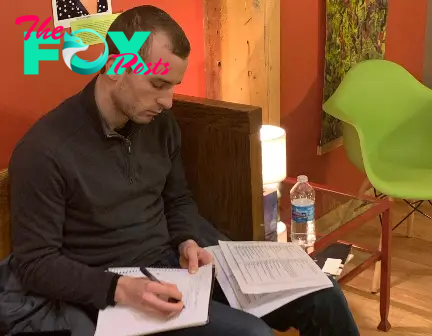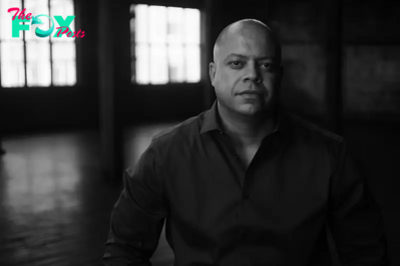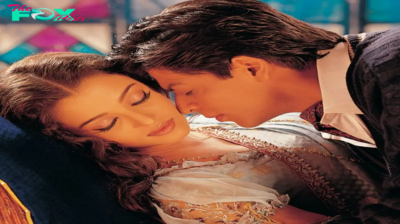Entertainment
Dramaturgy? What’s it? | Performing Studio Chicago
by Dana Pepowski
They’re all over the place: sharing analysis within the rehearsal room, main a thought-provoking talkback, or sifting via new scripts as literary supervisor for a theatre firm. Dramaturgs’ abilities in evaluation, problem-solving, and creativeness make them perfect collaborators with actors. However what does that relationship seem like? Let’s discover out about dramaturgy!

I spoke with Maren Robinson, freelance and resident dramaturg at TimeLine Theatre, an ensemble member at Lifeline Theatre, college professor, and all-around beneficiant dramaturgy mentor, to create the actor’s information to dramaturgy.
What is a dramaturg?
In keeping with Literary Managers and Dramaturgs of the Americas (LMDA), the preeminent member group within the Business, a dramaturg collaborates with artists to “hone their imaginative and prescient” for a venture, facilitate “retailers” for brand spanking new work, and enliven the world of a play for artists and audiences with considerate analysis. Dramaturgs provide a “essential hyperlink” amongst artists, cultural establishments, and the establishment’s literal and ideological neighborhood, making them key Gamers to honor the heritage and assemble the way forward for theatre-making.
In a day-to-day dramaturgical and literary administration observe, their work could seem like:
- Contextualizing a play with analysis and script evaluation for a manufacturing’s inventive workforce.
- Composing analysis packets, glossaries, examine guides, instructional applications, and foyer shows for the inventive workforce and viewers.
- Providing readability and perspective within the rehearsal room.
- Speaking suggestions and inquiries to the playwright.
- If a playwright is unable to be within the room, serving as “consultant” for the script’s intentions.
- Supporting the playwright’s writing course of with contextual analysis.
- Facilitating talkbacks and neighborhood occasions.
- Soliciting, evaluating, and monitoring new script submissions.
- Strengthening relationships with playwrights and their brokers.
- Advocating for productions, workshops, and readings of recent performs.
- Collaborating with the theatre’s employees to pick out a season of performs.
How does dramaturgy apply to my work as an actor?

Excellent news! You’re already (hopefully) practising dramaturgy as you thoughtfully put together for an audition, rehearsal, or efficiency. In keeping with Maren, an actor “commits random acts of dramaturgy” as they analyze your character’s arc inside the story, analysis themes throughout a playwright’s work, outline an unknown phrase, or unearth the context of a interval reference. An actor’s dramaturgy observe deepens their script preparation to be an “open-minded reader” of the textual content and imaginative scene associate.
How can actors study from dramaturgs? Collaborate with dramaturgs?
Whether or not you’re in control of your individual script preparation or are working with a dramaturg within the rehearsal room, the observe of dramaturgy provides helpful abilities to an actor. Check out these dramaturg-inspired tricks to deepen your subsequent rehearsal course of:
- Ask the nitty-gritty questions.
Maren loves it when actors come to her with inquiries to “assist them construct the life and world of the character.” She provides some current examples:
- What cigarettes would I be smoking?
- Does a girl cross her legs proper now?
- Might you present me with some interval recipes so I do know what I might need been consuming?
- Do you’ve got a guide for movie reference for the form of workouts I is likely to be doing?
- Might you go over the Heisenberg Uncertainty Precept with me once more?
You are able to do it, too! Self-directed analysis for an audition or rehearsal may also open thrilling insights into your character’s life. Use your creativeness to stroll via her world and its sensations: What scents can she scent? What recollections does she have of this room? How a lot did it value to purchase these sneakers?
- Stretch your (analytical) muscular tissues.
In case you have a dramaturg in your subsequent rehearsal course of, you’re lucky to have a person within the room who’s educated to “learn performs in a barely completely different approach” from administrators or actors, Maren explains. A dramaturg switches their focus between “massive image” and “character work” and between the “context of the world of the play” and “our personal political second.” In rehearsal, the dramaturg provides context to actors and director to allow them to discover the “number of methods” to interpret a beat or cultural reference in a scene.

Equally, an actor who’s gotten to know their script through “open-minded studying” and analysis may also unlock particulars and the big-picture context of the play’s world. As you observe flexibility in your perspective, you’ll uncover moments that “issues in a scene [or monologue] might go one other approach” – Shurtleff’s Guidepost #6, anybody?
- Comply with your pursuits.
The phrase “analysis” fills some actors with dread, remembering boring highschool historical past initiatives. Others get nervous as they face a completely unfamiliar world of a play (“how do I do know what inquiries to ask in regards to the each day lifetime of a prince of Denmark?”). Don’t despair! The simplest dramaturgy follows the researcher’s particular person pursuits.
Experiment to search out your distinctive “in” to the character’s world. Listed here are some examples from current dramaturgy initiatives by yours really:
- Make a playlist of widespread songs from the character’s childhood, area, or the period during which the play is about. Or, make a playlist of songs from your individual life with lyrics or music that replicate the story.
- Scroll via the setting (or your greatest guess on the location) on Google Maps Road View for the expertise of strolling your character’s neighborhood.
- What are the day-to-day logistics your character follows? What bus do they take for work? What’s their perfect morning routine? What acquaintances do they see on their commute?
- Based mostly on the textual content or crammed in by your individual creativeness, what’s a narrative your character is aware of by coronary heart? Discover a guide they could have learn or a bedtime story from their area of origin.
How does dramaturgy match into the way forward for Chicago theatre?
Maren believes that dramaturgs, particularly those that additionally direct, write performs, or act, observe “empathetic creativeness”. They use their expertise in numerous inventive roles to contemplate collaborators’ wants: “What may this actor be interested in for this character?” or “What questions may serve this playwright or this designer or director?”
Trying towards the longer term, she hopes that Chicago dramaturgs preserve their curiosity and “proceed to…ask what our communities want.” She tells me that “theatre survives [by]…responding to what the neighborhood tells us their wants are,” not by “telling [others] what we expect they want.” The observe of inventive flexibility via dramaturgy helps the way forward for equitable, accessible, and revolutionary theatre-making.
-

 Entertainment8h ago
Entertainment8h agoOrange County Choppers Is Ready For Its Big Comeback
-

 Entertainment12h ago
Entertainment12h agoThe Real Story of Geta and Caracalla, the Roman Brother Emperors in Gladiator II
-

 Entertainment12h ago
Entertainment12h agoWhat Gladiator II Gets Right and Wrong About Real Fights in the Colosseum
-

 Entertainment13h ago
Entertainment13h agoSki Area Officially Opens the Ski Season For New York
-

 Entertainment17h ago
Entertainment17h agoGladiator II Belongs to Denzel
-

 Entertainment17h ago
Entertainment17h agoJJ Velazquez on Finding Freedom, From Sing Sing to Sing Sing
-

 Entertainment22h ago
Entertainment22h ago13 Most Romantic Movies Based on Novels
-

 Entertainment22h ago
Entertainment22h agoThe Monkey Is the Secret Hero of Gladiator II

















